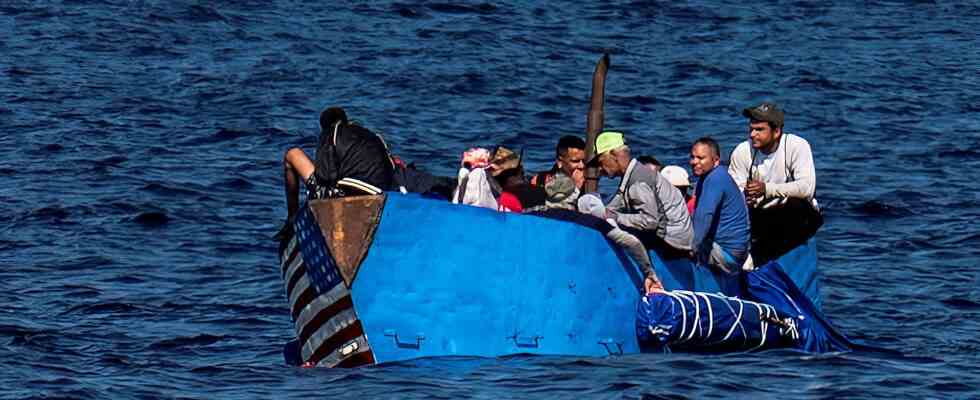Status: 01/04/2023 2:43 p.m
Cuba is suffering from the worst economic crisis since the 1990s. In the past twelve months alone, at least 200,000 people have left the country – also because of state repression.
Aleida Rivera remembers the last time she saw her son free. She is sitting on a couch in front of a shabby beige wall. Classical music can be heard in the background. The woman recounts her fate in a video chat with a Spanish MEP:
He said ‘Mom, I’m going to the park demonstration now’. And then I told him what I always tell him: ‘Take care! And don’t get involved in arguments.’ Then he asked for my blessing. I gave that to him. I love him and continue to support him.
Increased flight since July 2021
Her son’s name is Randy Arteaga and he is known in Cuba as a rapper with lyrics critical of the regime. On a day in July 2021 he goes to protest. Against state repression, for a democratic opening of the Cuban one-party system and against the supply crisis in the country.
Aleida Rivera’s son is arrested and put in jail. Just like about 1,400 others who took to the streets in July 2021 in the Caribbean country.
Since then, people have been fleeing en masse from state repression. Today, a year and a half later, more than 200,000 Cubans have left their country. The reports about boat people have been piling up for months.
“Do everything to be able to escape”
Just over the weekend, 300 refugees from Cuba arrived on Dry Tortugas Island in the Gulf of Mexico. The US National Park is located about 160 kilometers from Cuba. The US authorities have now closed the national park for the time being. This is unlikely to stop the mass exodus from Cuba. Migrants often drown during the crossing. But many also fly to Nicaragua and make their way to the US border by bus, taxi or on foot.
They are leaving all their belongings behind, as a Cuban refugee reports to the AFP news agency: “People are doing everything in Cuba to be able to flee. We sold our house, our belongings, everything we had, we have nothing more. And always with the risk that you will be deported and end up with nothing.”
Economically on the ground
For Cuba, it is a historic mass exodus. The communist-ruled country is currently experiencing the worst economic crisis since the 1990s and is economically on the ground.
Even staple foods such as bread or Vegetables are either hard to come by or overpriced. And tourism, one of the most important foreign exchange earners in the country, is only slowly recovering from the restrictions imposed during the corona pandemic.
Government blames US
The Cuban government attributes the crisis to the US trade embargo. In his New Year’s address, President Miguel Diaz-Canel encourages us to persevere:
We got through one of the most challenging years in the history of the Cuban Revolution together. At the start of the new year we feel the power of our historical heritage. That takes away our fear. At the same time, we are aware that it can also become even more difficult.
Aleida Rivera hopes for the new year that she can at least visit her son in 2023. He has been in prison for 18 months. “I’m very, very proud of my son, my family is too. The world should know how brave he is. He says what he feels. No matter what it costs him.”
It has already cost the young man his freedom. He was sentenced to a total of five years in prison.
Mass exodus from Cuba
Christina Fee Moebus, ARD Mexico City, January 4th, 2023 12:33 p.m

